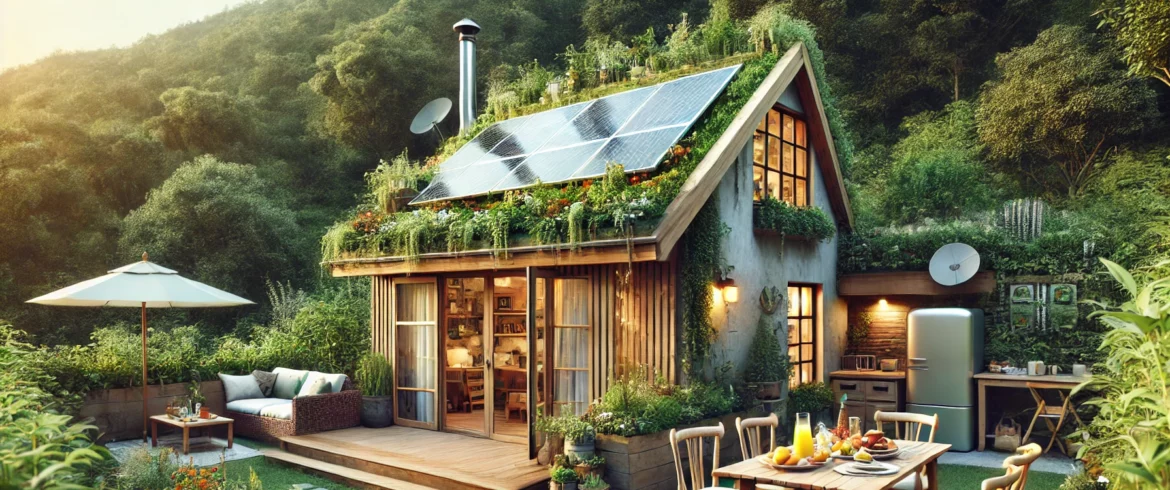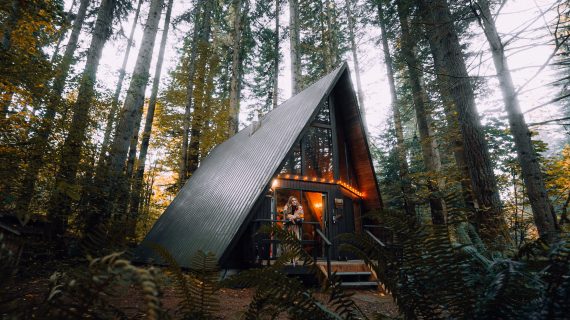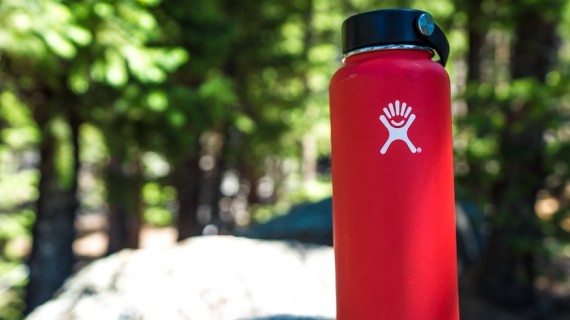Did you know that almost 80% of global travellers want to explore the world more sustainably? If you’re looking to differentiate your accommodation from the competition and tap into an ever-growing market, creating an eco-friendly bed and breakfast is a brilliant option.
Get a headstart on your journey towards providing sustainable hospitality with our step-by-step guide to creating an ecobnb. Let’s jump straight into our top tips.
Switch to Sustainable Services
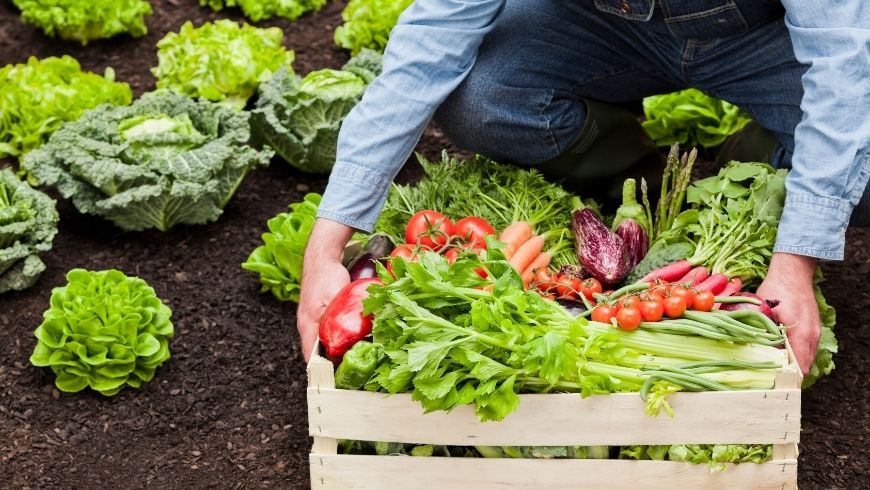
An eco BnB isn’t an island. You’re likely to have a whole team of partners you work with in order to stay up and running, from food suppliers to cleaners. An easy way to kick off your eco journey is to start switching your partners to more sustainable options.
For example, you might currently order your breakfast ingredients from a supermarket. To improve your eco credentials, switch to a grocer that delivers organic, local produce. This will have a lower carbon footprint thanks to the fewer miles needed to get it to your doorstep, and you can advertise an organic menu to your guests.
You might also find new services in the sustainable industry that can enhance your green credentials. A mixed recycling partner, for instance, will ensure waste that isn’t collected by your local council can still be recycled. A business like Priority WEEE can pick up and recycle electrical goods, while The Mattress Recycling People will deal with your worn-out bed frames and mattresses.
Teaming up with green suppliers and service providers will instantly enhance your sustainability and require minimal effort, making it a great first step for your eco BnB.
Look For Ways to Become More Self-Sufficient
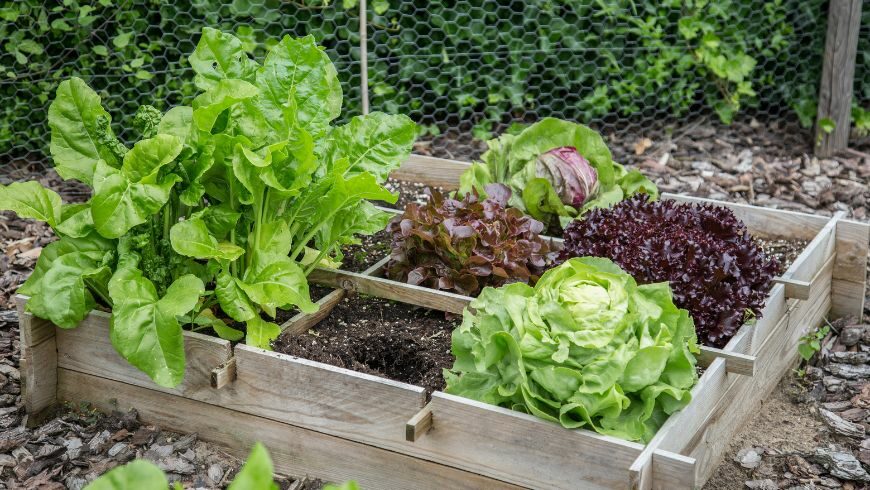
Self-sufficiency can make it simpler to become sustainable. It allows you to have complete control over your resources and reduces the need for numerous deliveries, cutting down on packaging and carbon emissions.
For example, if you have the space and time to start a vegetable garden, you’d have a supply of food that:
- Reduces the need for carbon-emitting transportation
- Reduces demand on national food supplies
- Allows you to grow organically
- Allows you to pick only what you need, when you need it, in an effort to reduce food waste
It’s also cheaper to grow your own produce, making it a cost-effective strategy.
This isn’t the only way you can enhance your self-sufficiency, either. There are plenty of opportunities to DIY your resources and increase sustainability, including by:
- Creating your own natural cleaning products
- Creating your own natural soaps for your BnB rooms
- Composting food waste to create natural fertiliser for your garden
- Harvesting rainwater to water your garden
- Upcycling glass jars for food storage and vases
- Sewing your textiles from reclaimed fabrics (such as turning old curtains into new cushions)
- Investing in solar panels (or other on-site renewable energy sources)
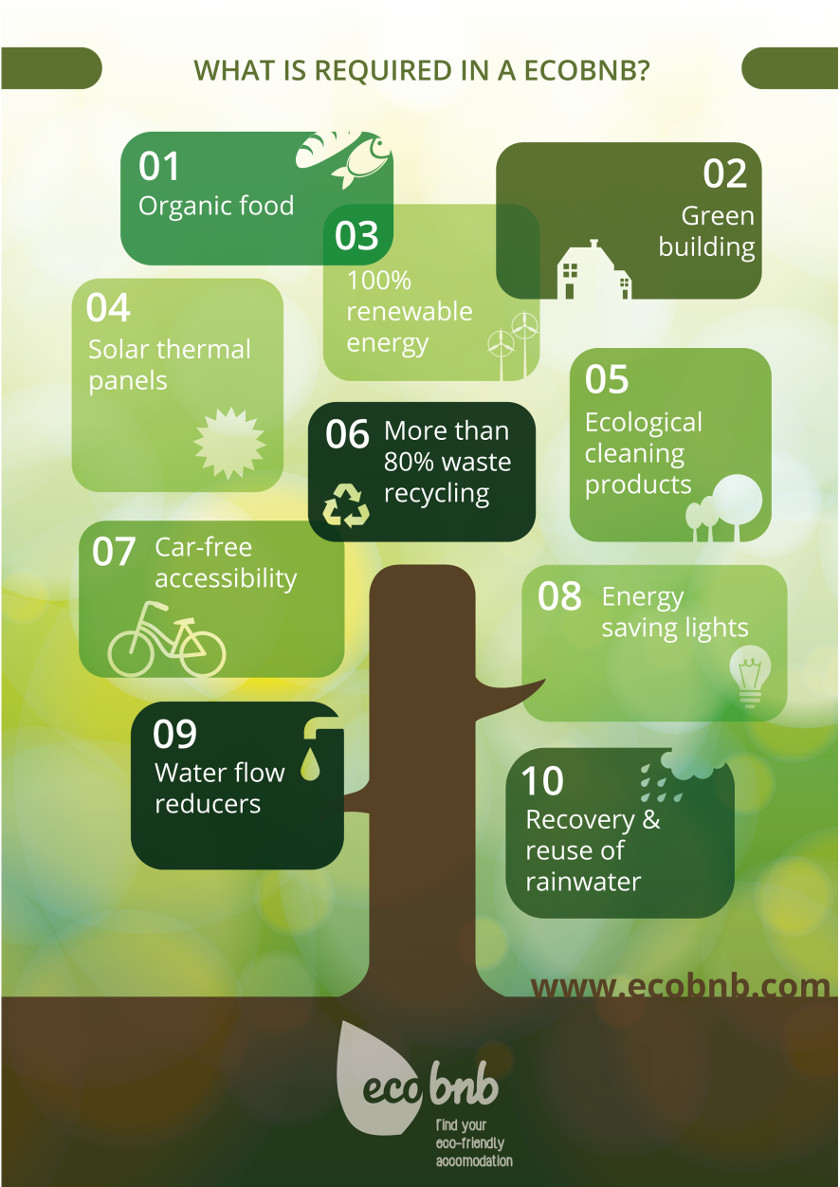
Wherever you can, reduce the environmental impact of mass production and global shipping by taking a DIY approach to your BnB needs.
Reduce Waste Throughout Your BnB
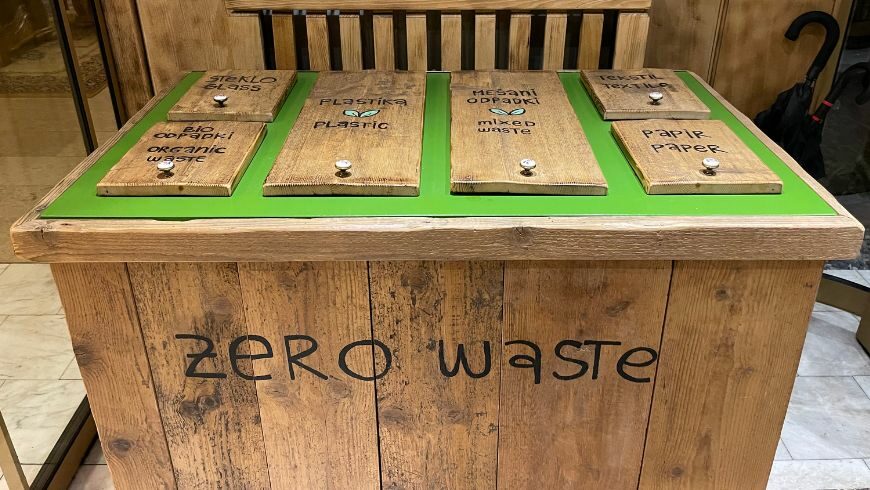
Hotels and BnBs produce around 290,000 tonnes of waste every year. This includes waste related to food, plastic, and water, making the hospitality industry a huge global polluter.
When looking to create a more sustainable hospitality industry, explore ways in which you can cut down on business waste. To help you get started, here are some eco-friendly ideas:
- Switch to products with less packaging, and opt for plastic-free items where possible
- Create an inventory management system to reduce food that needs to be thrown away
- Add signs around your BnB to encourage users to be conscious of what they use and how they can reduce waste
- Donate leftover food to local charities and food banks
- Place clearly labelled bins for recycling and composting
- Invest in low-flow toilets and showerheads to reduce water waste
- Use products that can be cleaned rather than single-use items
For more tips to cut down the amount of resources thrown out or misused, be sure to check out our article on waste reduction for ecobnbs.
Promote Low-Impact Travel
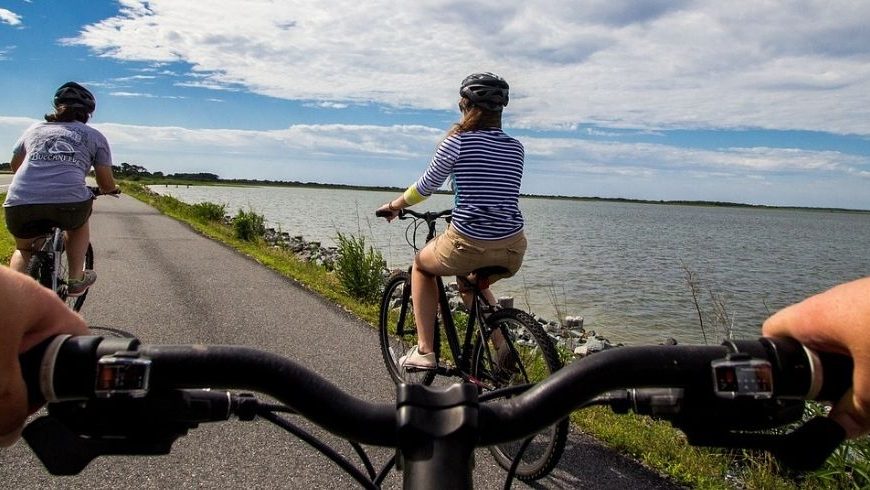
Sustainability in the hospitality industry often helps travellers leave less of a mark on the places they visit. Your bed and breakfast can encourage this, extending your eco-impact beyond the confines of your accommodation.
For instance, you could provide resources that advise guests on how they can reduce their impact while travelling to local sights. You might advertise local transport, too, and provide free information on bus routes to reach popular destinations. This would reduce the number of guests driving themselves or booking taxis, encouraging sustainable tourism.
You could also offer sustainable trips to places of interest. Organise electric shuttle buses for your group, pack organic, plastic-free lunches in reusable lunch boxes, and offer guidance on how to respect the environment you’re visiting.
Incorporate Plant-Based Foods
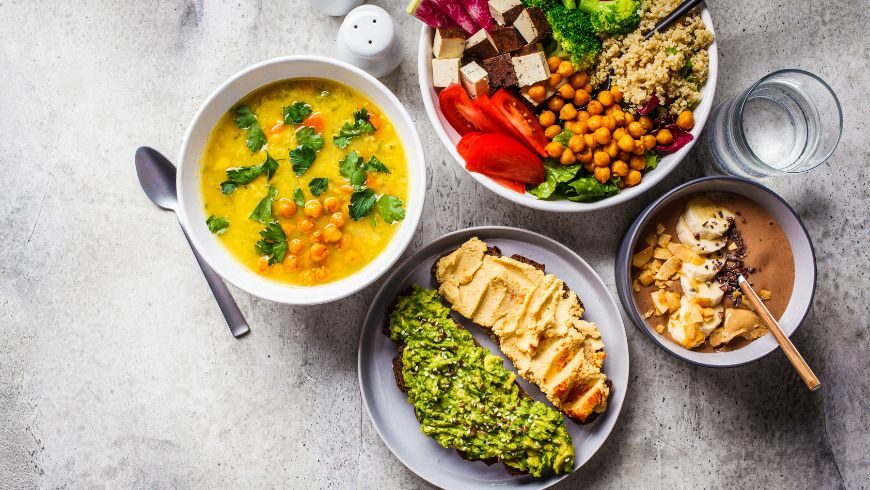
If you’re currently serving up meat-heavy breakfasts for your guests, it could be time to re-think your menu. While sustainable BnBs can serve meat and dairy, a simple way to lower your carbon footprint is to reduce the amount on offer.
Instead, focus on plant-based wholefoods. These are foods that aren’t derived from animal origin and aren’t overly processed, making them far better for our environment.
Some low-carbon ideas for breakfasts include:
- Tofu scramble
- Porridge made with non-dairy milk
- Chia seed pudding
- Mushrooms on toast
- Bean and avocado burritos
You can also encourage guests to consider the sustainability of their food by adding an average carbon footprint for each menu item.
Start Marketing Your Eco BnB
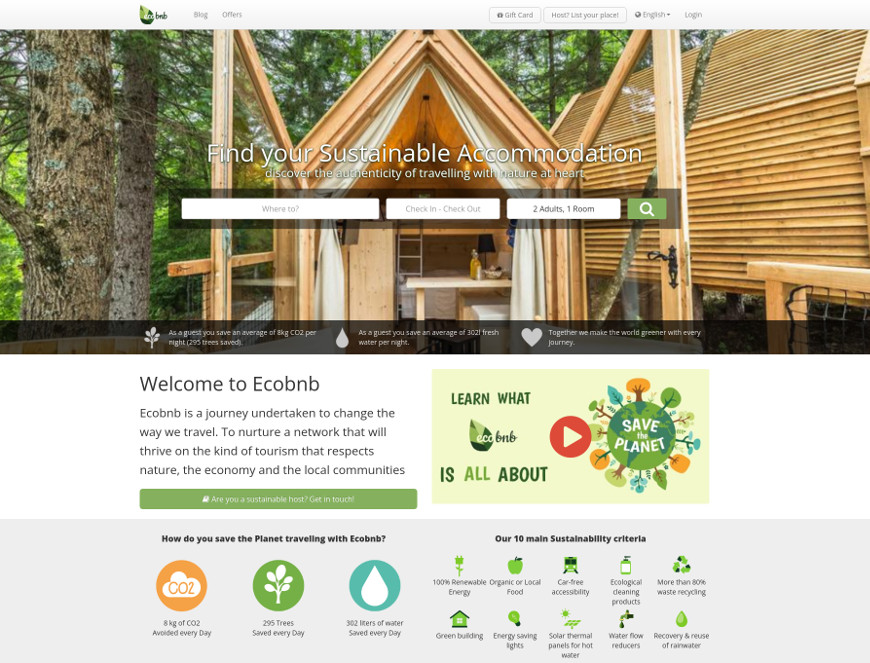
Once you’ve established your eco-friendly practices, it’s time to start marketing your sustainable bed and breakfast. This will attract prospective guests, establish yourself as an eco option in the hospitality industry, and re-target previous guests with the promise of a greener stay.
Looking for tips to help your bed and breakfast stand out? Here are our top marketing tips for eco-friendly BnBs:
- Social media: Set up social media profiles for your BnB on relevant platforms. Instagram and Facebook are both great options, allowing you to show off details of your accommodation through visual content and advertise any seasonal offers or discounts.
- Influencer marketing: Partner with influencers in the sustainable travel niche and invite them to stay at your bed and breakfast for free in return for promotion (such as on social media or via their blog).
- Accreditations: Look into accreditations and certifications that can prove your commitment to sustainability. Some great options include Green Key, Green Tourism, and ISO 14001.
- Pay-per-click (PPC) ads: PPC ads can skyrocket your visibility for sustainable search queries. By using this marketing method, search engines will place you at the top of search results that match relevant keywords – like eco-friendly bed and breakfast, for example – helping you quickly gain more website traffic and increase bookings.
Be sure to list your bed and breakfast on Ecobnb, too, and tap into an audience of eager, sustainable travellers looking for the accommodation you’re offering.
Final Thoughts
Sustainability in the hospitality industry is an increasingly popular niche amongst eco-conscious travellers. We hope this article has provided you with the tips you need to transform your bed and breakfast into a green, low-carbon space.
For more advice on creating an eco-friendly BnB or marketing your business, keep up with the latest on the Ecobnb blog.
